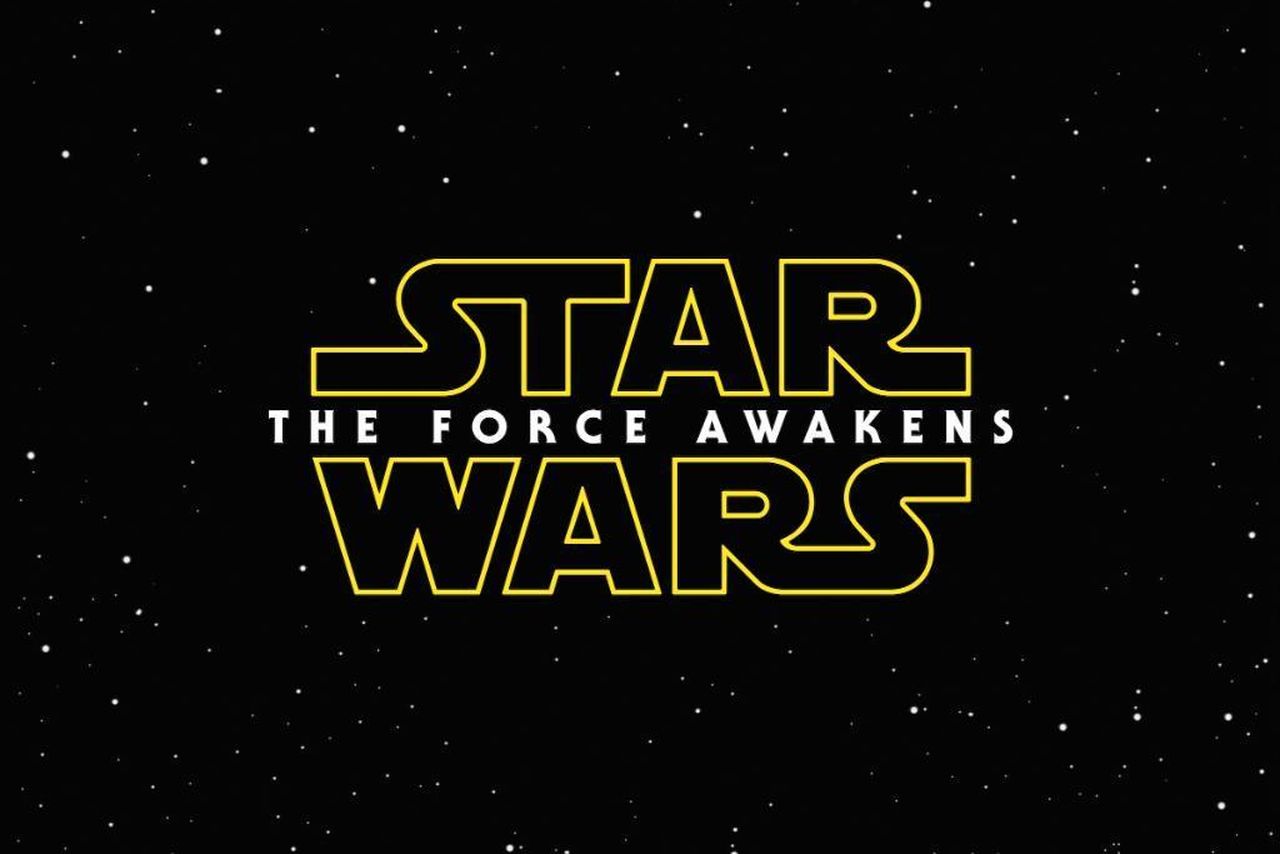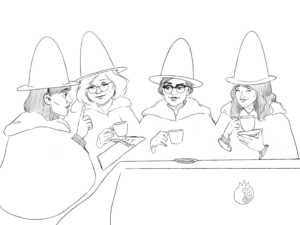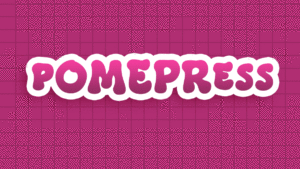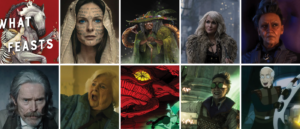Think back to that nearly palpable anticipation preceding the release of Star Wars: The Force Awakens. Finally, fans would get a follow-up to the original trilogy we treasured—but would the new film be good? Maybe even great? Would the new characters fit into the franchise? After the widespread disappointment surrounding the prequels (which have their merits, I must note), many of us were cautiously hopeful.
To the shock and surprise of no one, the hype leading up to the film would only be surpassed by the deluge of reactions following its release. Reading articles and analyses and cheers and complaints, I started to feel like everything there was to say about the beautiful cinnamon roll of a movie that is The Force Awakens had already been said by someone else.
But I don’t see this storm of passion as a drawback; I welcome it as one of the highlights of partaking in any rabid fandom, including the fandom for the most successful American movie franchise of all time. As anyone who’s waded through the heaps of reviews, review follow-ups, and counter-reviews knows, certain arguments caught on, for better and for worse.
Let’s take a look at that criticism and explore the bad with the good, and weigh both the most baffling and the most valid critiques of TFA.
It should go without saying, but abandon all hope of avoiding spoilers, ye who read on.
Four Baffling Critiques
1) Luke “ran away” from his “problems”
I’m honestly shocked that the gravity of Luke’s failure as a teacher (and as an uncle) isn’t enough for people to believe he’d disappear. He was training a new generation of Jedi and one of them—his own nephew—not only turned to the dark side, but murdered the other padawans. The moment where Han Solo first mentions this turn of events hurts my heart (even though he does it in passing and omits an important detail). It also hurts to think of Luke growing into a wise, old Jedi: Still full of the same hope and virtuousness that led him down the path to redeeming his father, he took on a new class of padawan learners, full of optimism about their potential and his ability to shape them into humble keepers of peace, only to have the whole thing torn apart by the pupil his sister sent to train with him. That brief glimpse of him kneeling next to R2 speaks to so much pain and such defeat. He failed. He failed Ben Solo the same way Obi-Wan failed Anakin. And not only was he unable to save his students, he’s unable to save every other person who dies at Kylo Ren’s hand.

Some people say he “abandoned his friends.” But it’s not like he’s sitting in Mos Eisely drinking space brews and rambling about how he was once the greatest Jedi Knight—he went to visit the first Jedi temple, presumably in search of some guidance in the midst of such a grave tragedy, and again, personal failure. Like many other fans, this is a story arc I can’t wait to see explored (even more so than Rey’s heritage). Luke’s failure hurts, but we know he’ll never just give up.
2) The movie is only good if you don’t overthink it
I take the completely converse stance on this issue, because I think overthinking Star Wars—much like Marvel, Firefly, The Matrix trilogy, and all my other sci-fan faves—is half the fun. I’ve been overthinking it since I saw it the first time, and it’s still great.
Incidentally, many of the people making this cynical claim are doing so in the context of extremely wordy and think-y reviews, wherein they analyze the shit out of the movie while also talking about how stupid it is to analyze it, so they can conclude it’s a fun, mindless movie that viewers should only watch in a fun, mindless way. But where’s the fun in that?
Yes, the movie leaves us with a lot of questions about both the characters’ pasts and futures. But isn’t that what the first installment of a new trilogy should do? Isn’t that precisely what A New Hope did?
I close this point with a keen observation from ahandsomestark on tumblr:
People should probably learn the difference between “plot holes” and “things I didn’t like” or “things the franchise plans to explain in the future” or “things filmmakers didn’t think they needed to explicitly explain because they thought you had critical thinking skills”
3) Rey sucks as a protagonist / is a Mary Sue
I’m almost hesitant to include this one because of how thoroughly discredited the knee-jerk “Mary Sue” claim has been. Repeatedly. But here’s the thing: No one is arguing that Rey doesn’t exhibit traits commonly associated with this trope. Like many heroes before her, female and male, she does. But, as many other writers point out, it is NOT fair or logical to conclude that this automatically disqualifies her from being a good/great character.

Anita Sarkeesian—who admits to not being much of Star Wars fan in her review—captures Rey’s characterization thusly:
Rey, the young woman at the center of The Force Awakens, is immediately compelling. She isn’t stoic or emotionless or hardened by violence, and her humanity keeps her from being another example of the tired “strong female character” type we’ve seen too much of these past few decades. She’s resilient and has learned to fend for herself, but she isn’t a loner. She’s competent and capable but also recognizes that she has so much to learn, and she welcomes friendship and support on her adventure.
Rey is a dream come true as a sci-fi/fantasy protagonist, particularly for fans who never expected to see such a compelling, self-sufficient woman hero at the helm of one of our favorite franchises. I am so grateful for Rey and can’t wait to see where her journey takes her. Until then, I’ll be thinking of her every time I listen to Adele’s “Million Years Ago.” (Don’t do it. I’m warning you.)
4) Kylo Ren fails as a villain
I am floored at how common this complaint has become. Where some were disappointed, I was stunned: Kylo Ren was one of the most fascinating, complex villains I’ve seen in sci-fi in ages. Kylo is everything a fledgling villain should be: conflicted, angry, unpredictable, self-righteous, and maybe most importantly, integral to the central conflict in a personal way. At a younger age, he killed his fellow students. He cosigns mass murders and genocides and doesn’t blink. He takes Anakin’s temper tantrums to a new, frightening level. He is the anti-Luke Skywalker in the clearest of ways: where Luke categorically refused to kill his father, Kylo sees killing his own father as his ultimate trial. And in the closing scenes, he nearly takes down two armed combatants while badly injured.
All this, and people still describe him as “too wimpy.” No, he’s not as “scary” as Darth Vader was. But in a brilliant stroke of meta writing, he is frustrated about that very thing. I can’t stress this enough: I am perplexed by the knowledge that some people were disappointed by him and/or Adam Driver’s fantastic portrayal. I absolutely love that, with this new trilogy, we get to see the growth and evolution of both the hero and the villain.
In his Forbes article, Erik Kain observes:
It’s funny to say Kylo Ren is emo—that Twitter account is a wonderful parody—but I love that Ren is a moody, emotional villain rather than just a badass. I love his temper tantrums and his admission that his task to kill his father is tearing him apart. What a human bad guy!
Sadly, we have the flipside of the Mary Sue coin when it comes to Kylo Ren. People complain that Kylo Ren isn’t enough of a straightforward villain at the same time as they say Rey is too much of a badass. The guy is too emotional, the girl is too tough. Whatever will we do with these slightly not-traditional gender roles?

Moving on, I do acknowledge that the movie has some shortcomings. I’m always intrigued by new takes on a film I enjoyed. Honing in on things that could stand some improvement makes fans smarter viewers, and smarter creators of our own original content. Although I maintain that the movie’s strengths far outweigh its weaknesses, the following four complaints stand out as TFA’s clear deficiencies.
Four Valid Critiques
1) Genocide is swept under the rug
Five planets. An entire star system. Gone in an instant and barely mentioned thereafter. A few characters do have a moment of shock when they see the planets destroyed in the sky, but the purpose of the moment is clearly to confirm that the First Order is pure evil, and that’s that, never-mind the billions (or trillions?) of lives gone. Granted, people recovered from unspeakable tragedies alarmingly quickly in the original trilogy, as well—for example, Leia’s famous first line to Luke, “Aren’t you a little short for a Stormtrooper?” occurs shortly after she’s witnessed her home planet obliterated. I would have liked to see TFA handle the emotional impact with more grace, but instead we’re supposed to be excited to see Han and Leia’s reunion, as well as Poe, BB-8, and Finn’s reunion, just minutes after four planets are wiped out. We see no hints of personal devastation at the unimaginable loss.

2) The false dichotomy of good/light vs evil/dark is tired
Clearly, this is a criticism of the Star Wars mythos itself and not just TFA, and it’s not something I expected them to subvert in the first installment of a new trilogy. But, god, I’d love to see them turn this on its head in the upcoming films. I’m not holding my breath for it to happen—we saw how well that worked out for the Wachowskis when they went for it in the Matrix sequels—but I also don’t think it’s an implausible development. As Sarkeesian notes:
In Star Wars, people have fates for which they are destined. With a few notable exceptions, good people are inherently good and evil people are inherently evil. When a person does change sides, it occurs completely, without any complexity or ambiguity. History seems destined to repeat itself in this galaxy far, far away: There will always be a Rebellion or a Republic fighting for freedom, and every crushed Empire will be replaced by a new First Order. Narratives like this work to reinforce the mythology that good and evil are clear absolutes that are in constant struggle, and in such a universe, lasting, systemic change is not possible
There are so many ways Rey and Kylo’s stories could evolve to deconstruct this overly simplistic view of good and evil—so much potential for a storyline that acknowledges the shortcomings in the centuries-old understanding of the Force as having a clear-cut light and dark side. I’m not going to stop loving Star Wars if this doesn’t happen, but I’ll be over the forest moon if it does.
3) The big scary weapon could have been better
I have to admit that this is something that didn’t bother me much the first time I saw the movie (I’m no weapons expert), but after repeat viewings and reading others’ takes on Starkiller Base, I have to agree that this concept was lacking. I understand the reasoning behind the writing—the moment where we get the size comparison to the Death Star is a really efficient way to make us go “oh shit” and “hey, cool, the Death Star” as a package deal. But yeah, the weapon should have been better. Neil deGrasse Tyson even pointed out how illogical it is for the weapon to harness/drain the energy of the planet’s sun:
In @StarWars #TheForceAwakens, if you were to suck all of a star’s energy into your planet, your planet would vaporize.
— Neil deGrasse Tyson (@neiltyson) December 21, 2015
I like a nice scoop of fantasy stirred into my sci-fi, but I don’t think “fantasy” excuses lazy writing. Starkiller Base is like something that group of geek dudes you ate lunch with for a semester of college would have “invented” over the course of several weeks and joked about how they should “sell it to the SyFy Channel” as an original movie pitch. It’s just like that.
4) The character development is rushed
This one isn’t so cut and dry, because I only partially agree. I do think the development is rushed, but that doesn’t mean it’s nonexistent. One of the main complaints I have about TFA is that it’s too short! The movie has fairly solid, engaging pacing, but sometimes we’re robbed of what could have been interesting developmental moments. When Finn finally tells Rey he was a Stormtrooper, that moment could have carried so much more weight. Instead, we get her split-second reaction and not much more.
Some reviewers point out that the characters care about each other almost immediately and with no real reasoning. But this specific critique doesn’t ring true for me, because I’ve seen plenty of movies where I thought “these people have no reason to care about each other this much,” and TFA was not one of them. On her blog Hello, Tailor, Gavia Baker-Whitelaw points out that the film hits a refreshingly genuine chord with its portrayal of youth:
Finn and Rey made me realize how many films just don’t understand how to depict youth. I don’t mean teen movies or coming-of-age stories, but the kind of youthful vitality that comes off Daisy Ridley and John Boyega in waves. They’re so emotive and energetic! They react to everything so fast! They feel so much!
It would have been nice to have some down-time where the characters really got to know one another, but the runtime just doesn’t allow room. This is something I think we really need to see in Episode VIII–characters’ bonds strengthening, friendships evolving, and backstories expanded.
Finn’s character development in particular has come up many times–it’s a bit heavy-handed that he goes from being a Stormtrooper to fighting and killing other Stormtroopers (including those who clearly recognize him) within one day. He does repeatedly stress that he must get away from the First Order, so he arguably fights in self-defense. Still, I find this critique of his story arc valid and hope to see his character explored in much more depth. (I will note, though, that I disagree with the assertion that his friendly, compassionate personality “makes no sense.” Why do people find it so unfathomable that a person who has experienced hardships could be kind and optimistic? Maybe those traits drove him to escape in the first place. Remember: General Hux comments on how unprecedented Finn’s decision to defect is. Instead of asking, “Why doesn’t Finn suffer any lasting effects from his time as a Stormtrooper?” I ask, “What lasting effects will Finn suffer after his time as a Stormtrooper?” Food for thought!)

There, see how much fun we’ve had with all this overthinking? It gives my brain the good juices. Of course, I’ve only scraped the iceberg. There is no shortage of other arguments floating around out there, like the idea that the movie is too reminiscent of A New Hope (I’m neither bothered by nor excited about this), or that it didn’t make any sense for Leia and Chewie to ignore each other at the end (what the hell was up with that?). The good news is that the Star Wars fandom is as passionate as ever, and with every observation, new ship, or elaborate theory, we continue to thrive.
Which cheers and jeers stood out to you? What reviews did you most enjoy or dislike? The storm of Star Wars passion doesn’t show signs of stopping, so don’t hold back. Let’s keep this party going until May 2017.
All images in this article via Star Wars: The Force Awakens.



